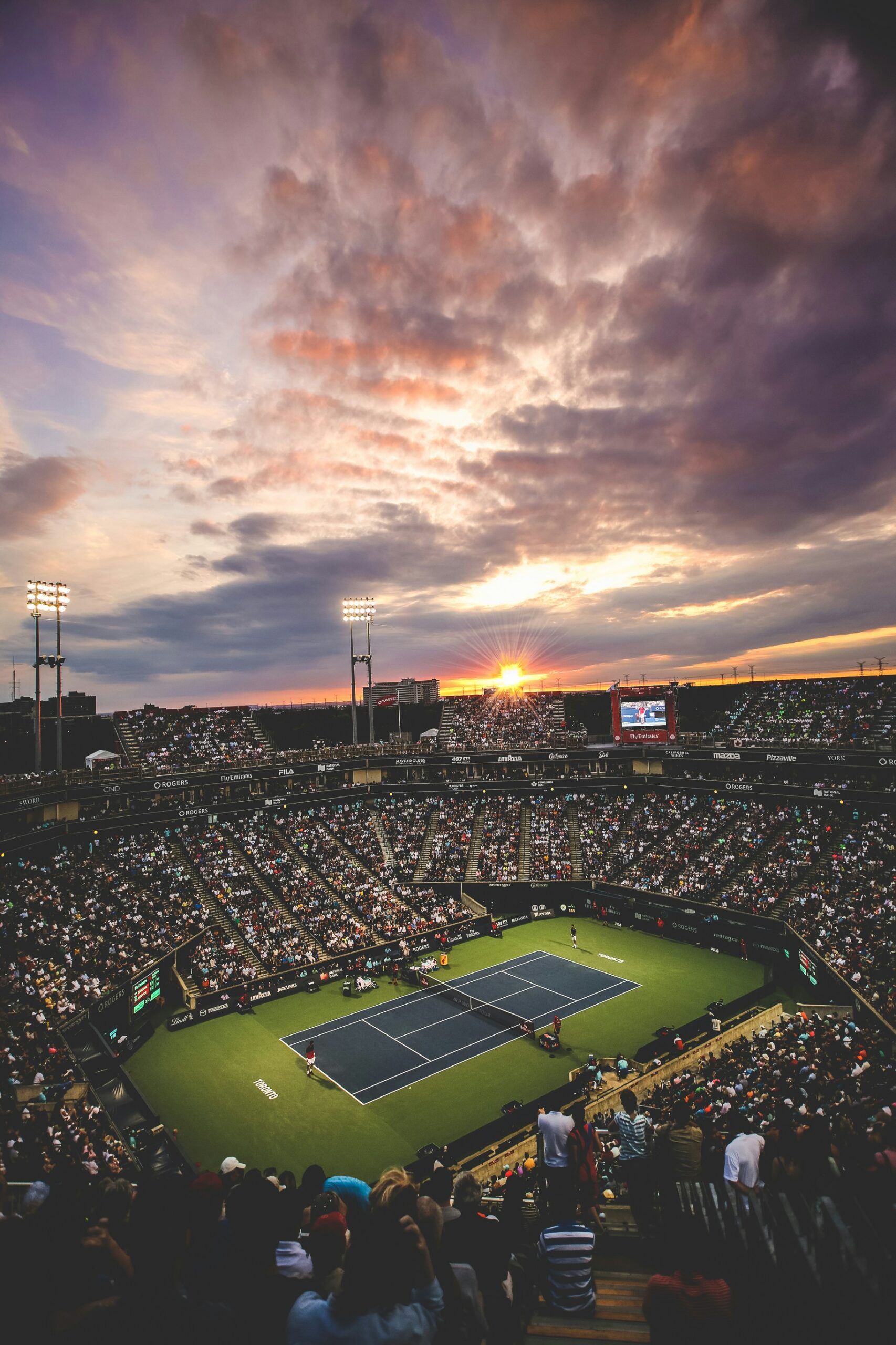The Globalization of Sports: How International Events Unite Cultures
You know that feeling when your favorite team is playing in a championship game, and you’re decked out in their colors, surrounded by friends, snacks, and a bit too much soda? Everyone’s cheering, high-fiving, and maybe even shedding a tear or two when the moment gets a little too intense. Now, imagine that same feeling, but on a global scale. Welcome to the world of international sports events! It’s a wild ride that not only brings out our competitive spirit but also unites cultures in ways that are nothing short of magical.
Sports: A Universal Language
Let’s kick things off with the notion that sports might just be one of the few universal languages we have. You don’t need to speak someone’s language to share a moment of awe when a sprinter crosses the finish line or when a soccer ball hits the back of the net. I remember watching the World Cup with friends from different corners of the globe—some from Brazil, others from Germany, and a couple from Japan. Language barriers faded into the background as we all cheered for our teams, shared snacks, and engaged in that age-old ritual of friendly banter. The thrill of the game created this instant camaraderie. It was as if we spoke a secret code of excitement and tension, punctuated with laughter and the occasional debate over a referee’s call (which, let’s be honest, is probably the most universal topic of disagreement!).
International Events: More Than Just Games
Now, let’s dive into some of the big international events that have become cultural phenomena. Think about the Olympics—this grand festival of human athleticism where nations come together to compete, celebrate, and sometimes even argue about whose athletes are the best (cue the friendly debates!). From the opening ceremonies to the medal presentations, the Olympics symbolize unity amid diversity. It’s a chance for countries to showcase their culture, their pride, and of course, their athletes. I often find myself glued to the TV, marveling at the opening ceremony, which feels like a mini-world tour. Each country’s parade of athletes tells a story, and I can’t help but get a little choked up when I see the flags waving and hear the national anthems.
Then there’s the FIFA World Cup, which is basically the Super Bowl of soccer (but, like, on steroids). It’s the one time when even the most casual fans become experts on the offside rule. Countries pour their hearts and resources into this event. I once read that people in Brazil literally take days off work to prepare for the games. It’s not just a sporting event; it’s a national holiday. The streets are painted in vibrant colors, and the air is filled with anticipation and the smell of barbecued meat. There’s something about seeing a Brazilian fan wearing their team’s jersey while dancing samba that just screams joy. It’s infectious!
Building Bridges Through Sports
But let’s not just stop at the fun and games. There’s a deeper layer to this globalization of sports. International events have this incredible ability to build bridges between cultures that might otherwise remain distant. Take cricket, for instance. In many parts of the world, especially in India, Pakistan, and the UK, it’s more than just a sport; it’s a way of life. When the Cricket World Cup rolls around, you can feel the pulse of nations beating in unison. Fans gather in homes, parks, and public spaces to watch their teams battle it out. It doesn’t matter if you’re from a different background or culture; for those few hours, everyone’s on the same team. I remember being in a bustling café in Mumbai during a World Cup match, and the energy was electric. People from all walks of life, united by their love for the game, were shouting, laughing, and even crying together. It’s moments like those that remind me how sports can transcend borders.
The Role of Technology in Global Sports
Now, technology has played a massive role in this globalization. Remember when we used to wait for the newspaper to find out the score of a game? Those days are long gone! With a couple of clicks on our phones, we can stream live events, follow our favorite teams, and connect with fans across the globe. Social media has given us a platform to share our fandom, whether it’s posting that epic goal or engaging in heated debates about which player deserves the title of “greatest of all time.” (I mean, can we all just agree it’s messy, but let’s not open that can of worms…)
Moreover, platforms like YouTube and TikTok allow fans to share their experiences and celebrate their teams, no matter where they are. I recently came across a heartwarming video of fans from rival teams coming together to support a player who suffered an injury. It’s a stark reminder that, amidst all the competition, there’s a shared humanity that binds us together. And who doesn’t love a good underdog story, right?
Celebrating Cultural Diversity Through Sports
One of the most beautiful aspects of international sports is the celebration of cultural diversity. Each event becomes a melting pot of cultures, where traditions are shared, and new friendships are forged. Take the Winter Olympics, for example. Aside from the breathtaking displays of athletic prowess, you get to see athletes from different countries showcasing their unique traditions. I’ll never forget the time I watched the figure skating competition and was mesmerized by one athlete’s costume that reflected their heritage. It was a beautiful reminder of how sports can be a canvas for cultural expression. And let’s not forget the food! Every international event brings with it a culinary adventure. Suddenly, you’re not just watching a game; you’re sampling dishes from around the world, from spicy tamales to sushi rolls, all while cheering on your favorite athletes. Talk about a win-win!
The Spirit of Sportsmanship
Let’s talk about sportsmanship for a moment. In a world where competition can sometimes feel cutthroat, international sporting events often showcase the best of humanity. Athletes from different countries shake hands, share hugs, and celebrate each other’s achievements. It’s a beautiful thing to witness, especially when rival teams come together in a show of respect. I remember watching a post-match interview where a player from one team praised the skills of an opponent, saying, “They played their hearts out, and you can’t help but respect that.” It’s moments like these that remind us that, at the end of the day, we’re all human. And honestly, it makes the world feel a little bit smaller and a little bit kinder.
Challenges and Controversies
Of course, it’s not all rainbows and high-fives. Global sports also face challenges and controversies that can sometimes overshadow the joy. Issues like doping, corruption, and the treatment of athletes come to the forefront during major events. Take the Olympics, for instance. While it celebrates athletes from around the world, it’s also a stage where issues of inequality and political tensions can rear their heads. Remember the controversy surrounding the 2008 Beijing Olympics? It was a time when politics and sports collided, sparking global conversations about human rights and freedom. And let’s not even get started on the controversies around the FIFA World Cup bids. It feels like every few years, there’s a new scandal that leaves fans shaking their heads.
But even amidst these challenges, there’s a resilience in the sporting community. Athletes often use their platforms to raise awareness about important issues, reminding us that sports can be a vehicle for change. Whether it’s a player kneeling during the national anthem or an athlete speaking out against injustice, these moments remind us that sports can transcend the field and spark conversations that matter.
Future of Global Sports
So, what does the future hold for the globalization of sports? As we move forward, I think we can expect even more integration. With advancements in technology, sports will only become more accessible. Imagine being able to virtually attend a game in another country, feeling the energy of the crowd right from your living room. Or what about augmented reality experiences that allow fans to interact with their favorite athletes? The possibilities are endless!
Moreover, we’re likely to see an even stronger emphasis on inclusivity and diversity. Sports organizations are increasingly recognizing the importance of representing all voices and backgrounds. Initiatives to ensure that women and marginalized communities have equal opportunities are gaining momentum. This is a great shift towards making sports a more inclusive space for everyone. I mean, who wouldn’t want to see a more diverse array of athletes and stories on the world stage?
Wrapping It Up
At the end of the day, the globalization of sports is a beautiful tapestry woven from the threads of culture, competition, and camaraderie. It’s a reminder that, no matter where we come from, we can come together to celebrate our shared love for the game. Whether you’re a die-hard fan or someone who occasionally tunes in for the big matches, there’s something undeniably special about the way sports unite us. So, the next time you find yourself cheering for your team or sharing a moment of joy with someone from another country, take a moment to appreciate how sports have this remarkable power to connect us all. And who knows? You might just find that the world feels a little bit smaller and a whole lot friendlier.







